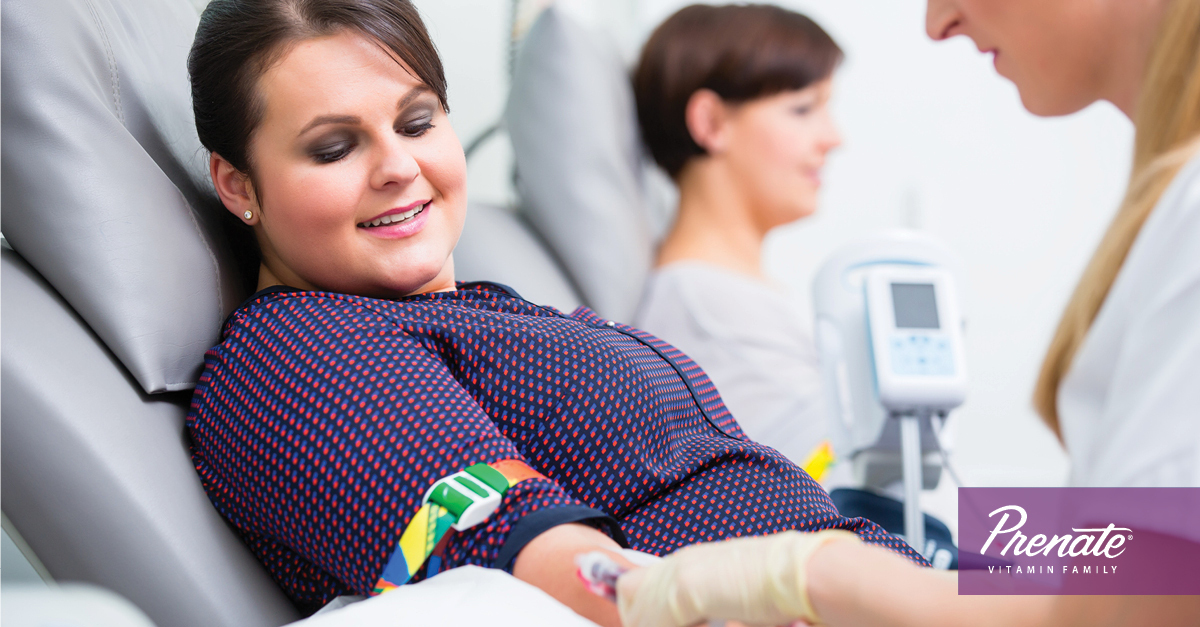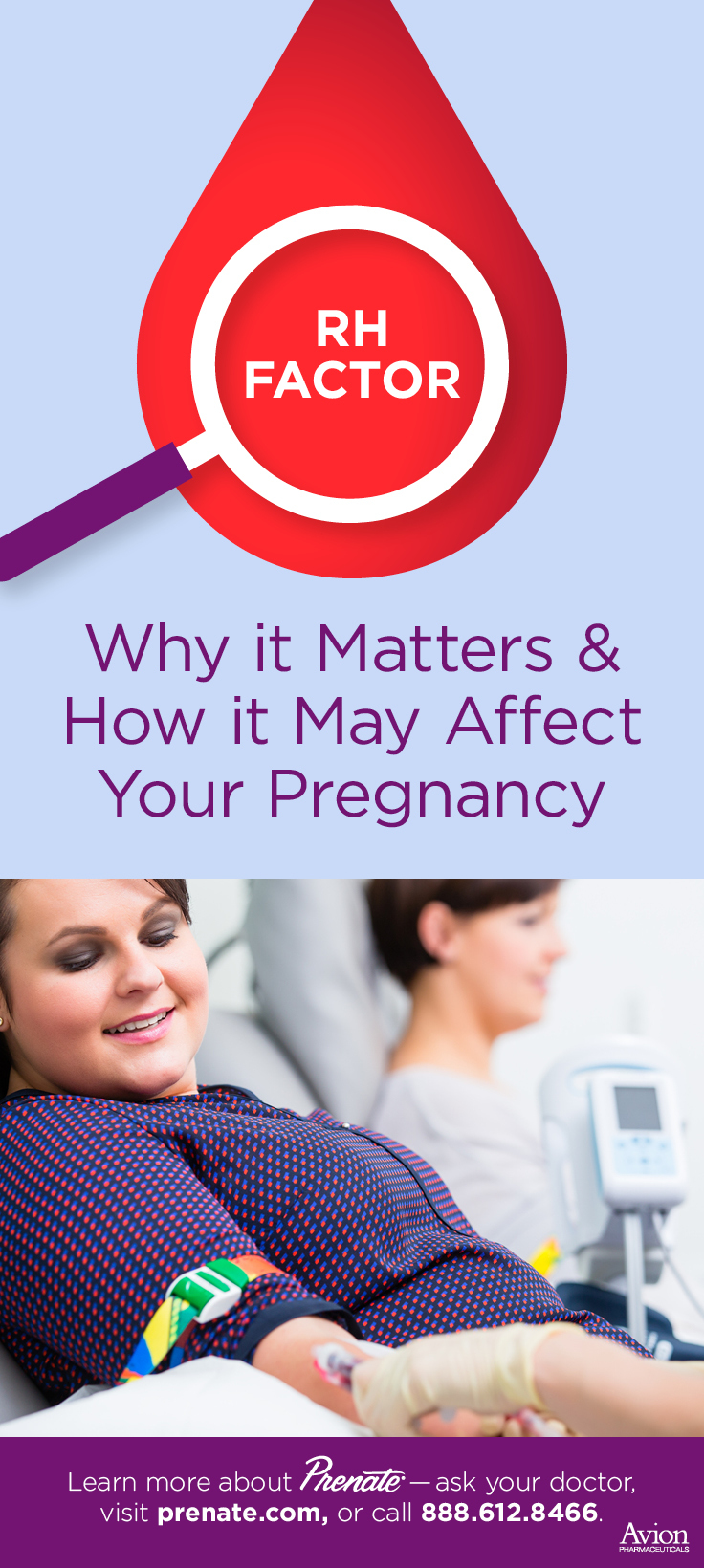Rh Factor Blood Test & Pregnancy
August 26, 2020
Sometimes, medical conditions that do not adversely affect a woman directly can have serious implications if she becomes pregnant. Rh blood type is one such factor in determining certain risks for pregnant women; therefore, your doctor will likely order an Rh blood screening during your first prenatal visit.1
What is Rh Factor and Why Does it Matter?
Rhesus (Rh) factor is an inherited protein found on the surface of red blood cells. If your blood contains the Rh factor, you are Rh positive. If your blood does not contain this protein, you are Rh negative. Rh positive is the most common blood type.1
Having an Rh negative blood type is not considered an illness and in most cases does not affect your health. However, if you are Rh negative and become pregnant, your pregnancy may require special care if your baby is Rh positive. This is known as Rh incompatibility.1
Rh Incompatibility During Pregnancy
Usually, the blood of mothers and their babies does not mix during pregnancy; however, sometimes blood can become intermingled during delivery or if the mother experiences bleeding or abdominal trauma during pregnancy. It may also occur during amniocentesis, chorionic villus sampling (CVS), or attempts to manually move the fetus out of breech position.1-2
If the blood of an Rh positive baby mixes with that of an Rh negative mother, the mother’s body will produce Rh antibodies after being exposed to the baby’s blood cells. It’s as if the mother’s body knows that the baby’s blood cells are not her own and her body produces these antibodies as a way of defending itself against what it interprets as an intruder.1-2
These antibodies are usually not a threat during pregnancy. However, they can lead to very serious problems in future pregnancies. If you are an Rh negative mother who produced antibodies during your first pregnancy, those antibodies can cross over the placenta during your next pregnancy and damage the red blood cells of your baby in utero. This can lead to a life-threatening form of anemia in which the baby’s red blood cells are destroyed faster than they can be replaced.1
Rh Blood Screening
The purpose of an Rh factor blood screening is to determine the mother’s Rh blood type early, preferably before or immediately after she becomes pregnant. If the mother’s blood screening shows that she is Rh negative, her doctor may advise her to take medication to prevent antibodies from forming.2
If you are Rh negative and there is a chance that your baby is Rh positive, your doctor may order an antibody screening. This is a separate blood test that determines if your body has already made antibodies in response to being exposed to Rh positive blood cells.2
Typically, Rh antibody screening is done during the first trimester and again at 28 weeks. In some cases, screenings may be done more frequently.2
Antibody Treatment
For women who have not been exposed to an incompatible Rh factor, their doctor may advise Rh immune globulin (RhIg) treatment once they become pregnant. RhIg is administered by injection, usually at 28 weeks of pregnancy and then again within 72 hours after the Rh-positive baby has been delivered.2
RhIg treatment is only effective if the woman has not already made Rh antibodies.1-2
If you are Rh negative and your body has already created antibodies in response to being exposed to Rh positive blood cells, your pregnancy may be considered higher risk. The development of the baby will be monitored very carefully, usually with ultrasound exams.2
If your baby develops severe anemia, early delivery (before 37 weeks) may be required. Alternatively, doctors may perform a blood transfusion through the umbilical cord while the baby is still inside your womb.2
If your baby’s anemia is mild, the delivery may occur at the normal time. However, the baby may require a blood transfusion after delivery.2
Prenate® Vitamin Family
This post is sponsored by the Prenate® Vitamin Family, a line of prescription prenatal supplements designed to enhance preconception, prenatal, and postpartum nutrition in women. Talk with your doctor about how taking a daily prescription prenatal or postnatal vitamin could help support a healthy pregnancy and postpartum wellness.
You Are About To Leave This Website
By clicking continue, this link will take you to a website to which Alora Pharmaceuticals Policies & Terms of Use do not apply. Alora and its subsidiaries do not control the content or accuracy of third-party websites and assume no responsibility for their use.
















